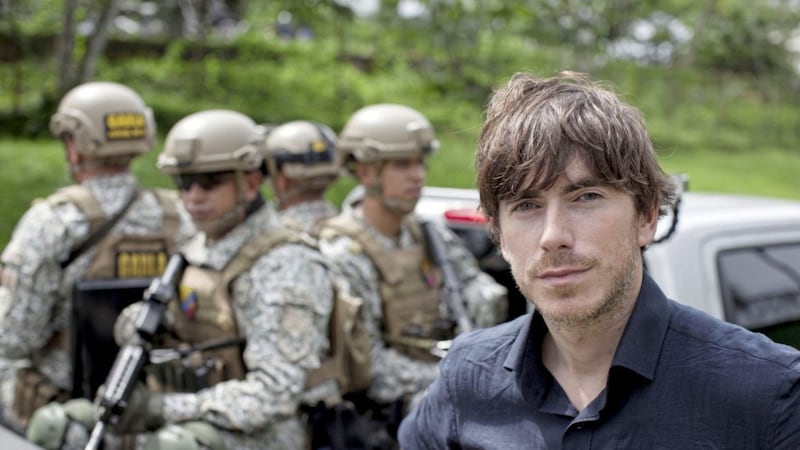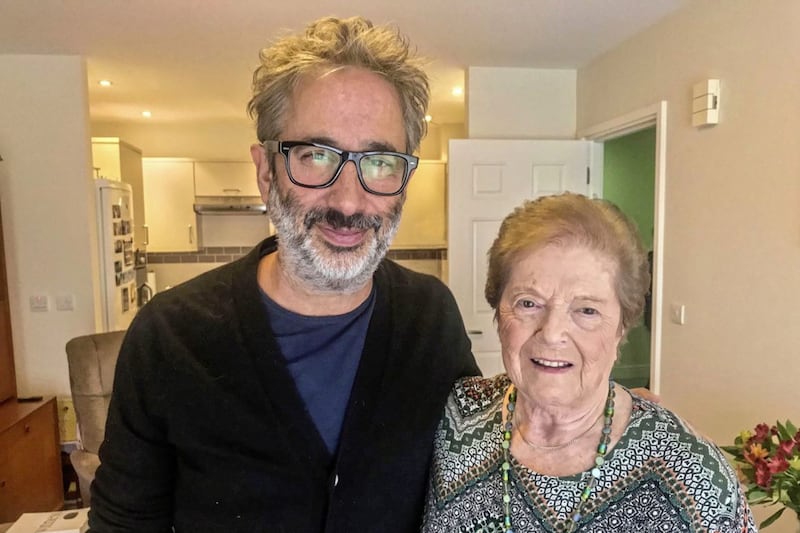Colombia with Simon Reeve, BBC 2, Monday at 9pm
Simon Reeve has a solution for Colombia’s conflict - solve the land problem where a handful of fabulously wealthy families own all the most fertile areas and the peasants are left with mountaintop scraps.
It’s obviously easier said than done, but it doesn’t make Reeve’s analysis any less valid.
His Colombian travelogue was excellent, coming as the troubled country is trying to agree a new peace deal to end a 50-year-old conflict which has claimed more than 200,000 lives.
I can personally attest that Colombia was an extremely scary country
I spent nearly a month there in early 2000, crossing the border from Ecuador and travelling by bus to Cali, Medellin, up to Cartagena on the Caribbean coast and then back to Bogota.
I have a strong memory of crowds gathering around a television in a bus station to watch news reports of an attack on a bus in the countryside.
There were bloodied bodies on the ground of people who had been killed and others had been kidnapped for ransom.
Nevertheless, the overnight sleeper from Cali was full, but I wasn’t the only nervous one.
Every time the bus seemed to be slowing down or stopping for a break, half-sleeping passengers pulled open the curtains to check what was happening. There were even a couple of false alerts as nervous passengers thought they saw something in the dark.
Even Cartagena, which has the reputation of a holiday resort for Colombia’s rich, had an air of menace about it.
I stayed in a cheap hotel in the old town for a week but was woken in the middle of the night by banging on my door.
When I opened up a very nervous looking hotel owner - whom I had a couple of chats with previously - was accompanied by what I assume were two plain-clothed police officers with baseball caps on and guns sticking out of their jeans.
They questioned me about my reason for being in Colombia and checked my passport for other countries I had visited.
As I answered one man’s questions the other walked behind me to where my rucksack lay in the corner of the room. I was convinced he was about to plant something in my luggage as an excuse to seek a bribe.
Fortunately they left after a very long 10 minutes, but I still have no idea if I was suspicious for some reason or just part of some random - albeit not very tourist friendly - checking process.
By this stage I was properly spooked and after a few days in the capital, I had a quiet cheer to myself when I boarded the plane at Bogota airport to leave the country.
Reeve spoke to victims and politicians, but the most powerful part of his report was when he went into the jungle to interview a Farc leader.
Mauricio Jaramillo, also know as ‘El Medico’, is said to be planning a career as a politician in the new Colombia.
He’s already well practised and his answers may sound familiar to anyone from Northern Ireland.
Asked by Reeve if there was anything he’d ordered as a Farc commander that kept him awake at night, he paused and then shook his head. "No", he said.
After another pause he added: “During a war unfortunate things happen … things I’ve done personally, I can’t remember anything. Some things did happen in battles with the army. Maybe some could have died, but I don’t know.”
Reeve to his credit pushed him further and also reflected that the Colombian army and right-wing paramilitaries had also carried out atrocities
But ultimately, he reasoned, the cause of the conflict was land.









